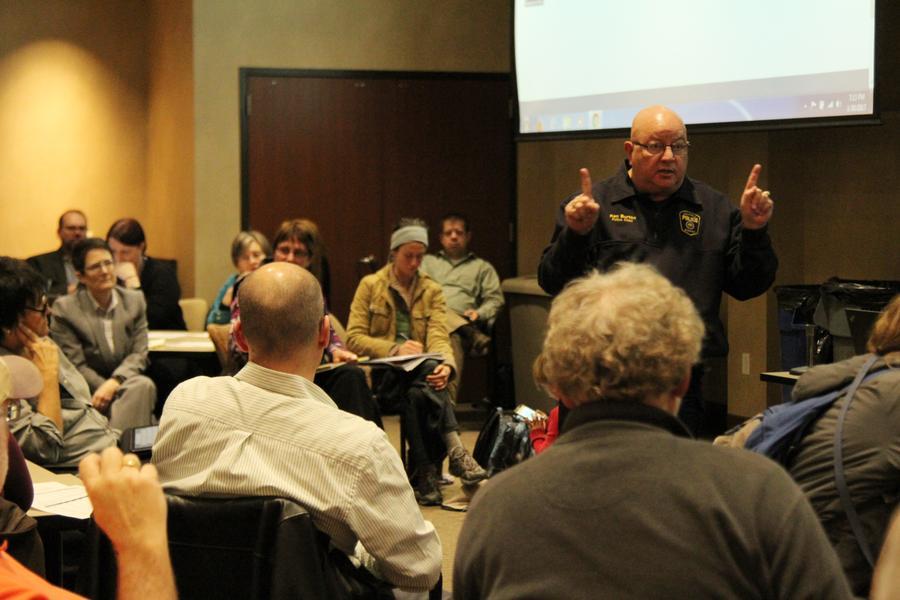A town hall meeting on Monday evening, intended to be an open forum to discuss racial profiling, ended with another rejection by Columbia Police Chief Ken Burton that profiling exists in the city.
The event, described as a “listening tour” on CPD’s website, is the third in a series of four meetings meant to address citizens’ concerns about racial profiling.
Burton, as well as city manager Mike Matthes and Deputy Police Chiefs John Gordon and Jill Schlude, presided over the meeting. In the audience were members of various activist groups, including Race Matters, Friends, the Youth Empowerment Zone, and Empower Missouri.
The police chief recognized the validity of 2015 data that showed black people were three times more likely than white people to be stopped by police, yet they were significantly less likely than whites to be found with contraband. But he insisted the data was insufficient and required further analysis.
“I’ve got a stubborn streak in me, and when I looked at the data I said, ‘That’s not enough data for me,’” Burton said during the meeting. “I still believe that, and I think we need to look into it more.”
When citizens both black and white shared their experiences of being stopped by police, Burton repeatedly defended his officers’ actions.
“Maybe if you would patrol some of the [predominately white] areas more, you would catch more white people,” one black man said at the meeting. “I was followed from Noble Court to Business Route 70 to Providence Road to Walnut Street. So what is profiling? Is that profiling?”
Another man spoke about driving by a police officer who then proceeded to flash his lights, signaling the man to stop. When asked about the stop, the officer allegedly said he was ‘checking to see if your license plate turn signal was broken.’
Burton replied that this was a common method used to stop citizens at night.
Throughout the meeting, officers frequently referenced their department’s new “consent to search” policy as a sign that they are listening to citizens’ concerns. This policy requires signed consent before police can search vehicles, rather than simple probable cause.
“You don’t play a game with someone’s Fourth Amendment rights,” Gordon said. “If they say no to a search, then the answer is no.”
When questioned why police would request a search without probable cause in the first place, Burton said the reason would “vary by officer.”
Other new initiatives cited during the meeting include increased training and an apprenticeship program to recruit more minorities to the force. Burton said such bias-free training “encourages officers to look at someone’s humanity first.”
Matthes said there will be one more town hall meeting hosted by the NAACP. After this meeting, a new report containing the department’s conclusions on racial profiling will be compiled and sent to City Council for review.
_Edited by Madi McVan | [email protected]_








